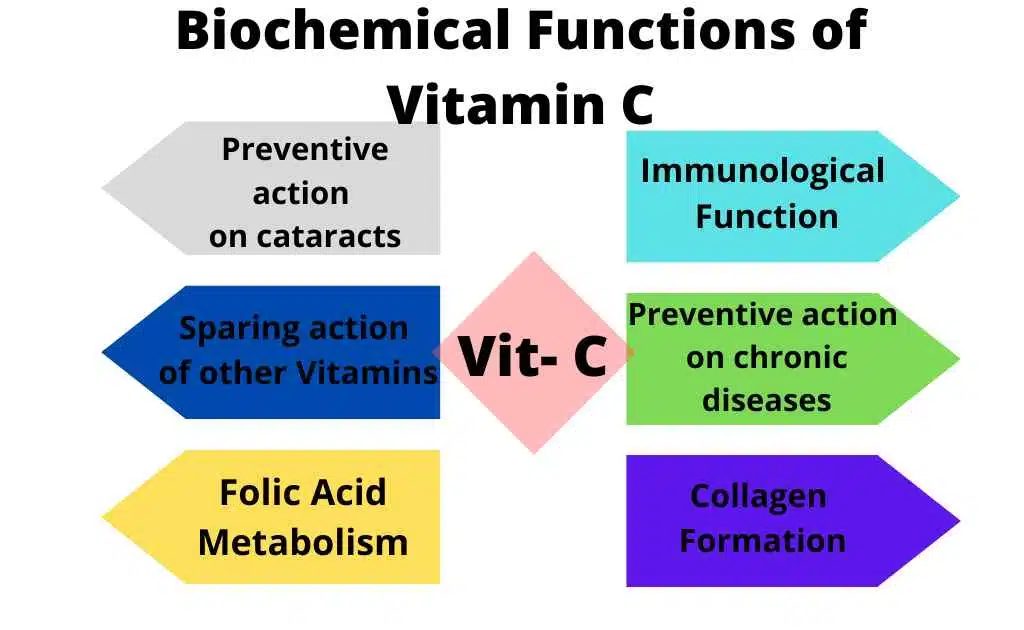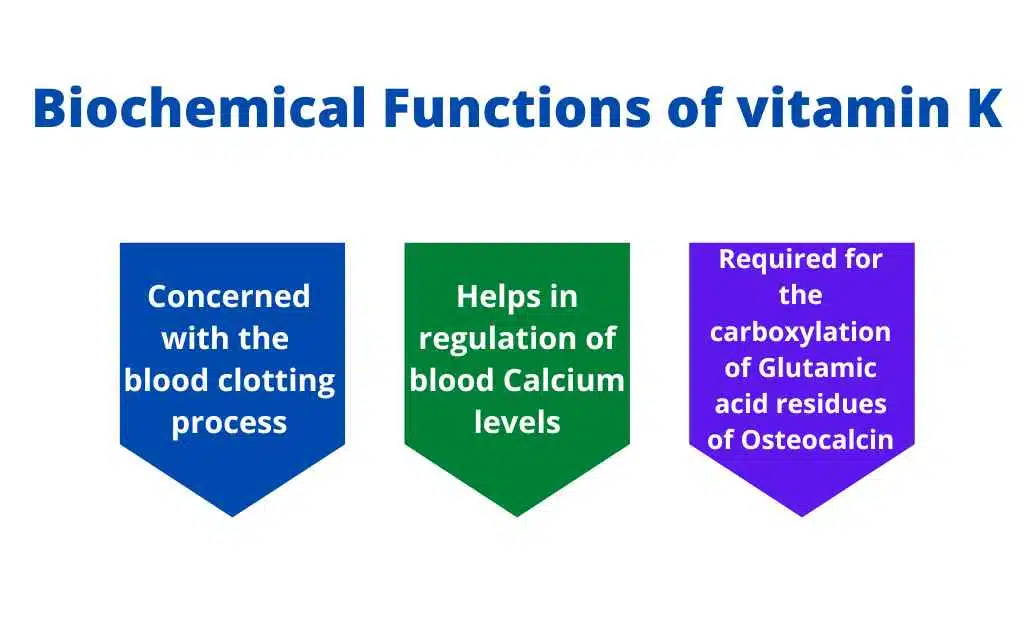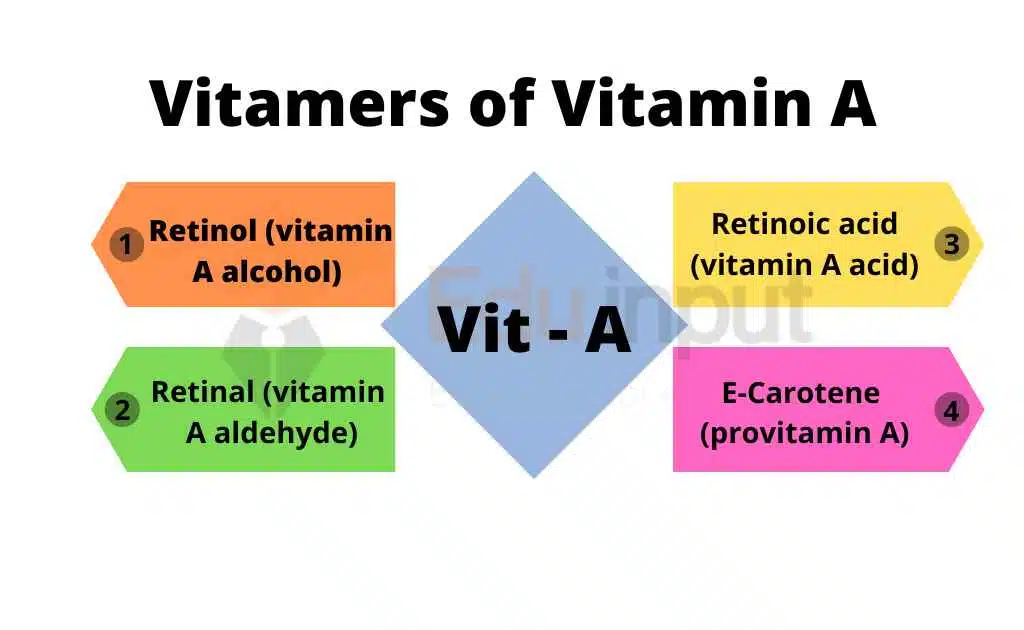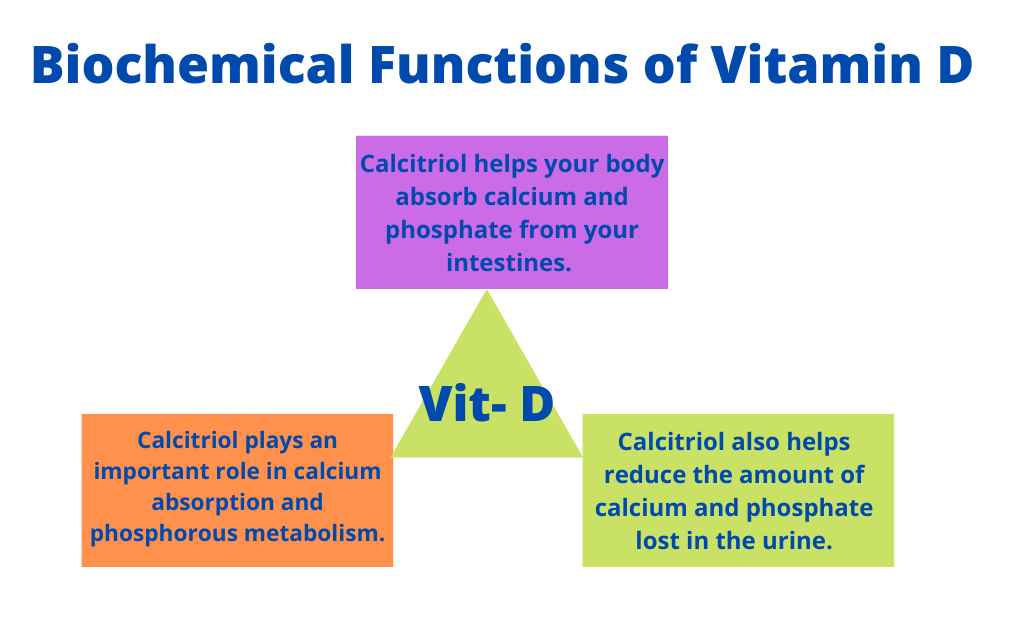Vitamin C (Ascorbic Acid) – History and Biochemical Functions
Vitamin C is a water-soluble versatile vitamin. Vitamin C is important to human health, but in recent years it has become one of the most controversial vitamins. This is because people have been claiming that megadoses of vitamin C can cure everything from the common cold to cancer. However, there is no scientific clue about it.
History Of Vitamin C (Ascorbic Acid)
Scurvy has been known to man for centuries. It was the first disease found to be associated with diet. In the sixteenth century, about 10,000 mariners died of a miraculous disease (scurvy) due to a lack of fresh vegetables in their diet. James Lind, a surgeon of the English Navy, 1753 published ‘Treatise on Scurvy in.
The Royal Navy used to supply lime juice to all the crews. The English Navy used to carry crates of lemons, hence they were popularly known as Limeys.
Biosynthesis Of Vitamin A
Many animals can synthesize ascorbic acid from glucose via a uronic acid pathway. However, man, other primates, and bats cannot synthesize ascorbic acid due to the deficiency of a single enzyme namely L-gluconolactone oxidase.
It is rapidly absorbed from the intestine. Ascorbic acid is excreted in urine as such, or as its metabolite diketogulonic acid and oxalic acid.
Sources of Vitamin C
These are some sources rich in vitamin C:
• Citrus fruits
• Bell peppers
• Strawberries
• Tomatoes
• Cruciferous vegetables
• White potatoes
Biochemical Functions Of Vitamin C
Biochemical functions Most of the functions of vitamin C are related to its property to undergo reversible oxidation-reduction i.e., Interconversion of Ascorbic acid and Dehydroascorbic acid.

1. Collagen Formation :
Vitamin C plays the role of a coenzyme in the hydroxylation of proline and lysine while procollagen is converted to collagen.
2. Bone Formation :
Bone tissues possess an organic matrix, collagen, inorganic calcium, phosphate, etc. Vitamin C is required for bone formation.
3. Iron And Hemoglobin Metabolism :
Ascorbic acid enhances iron absorption by keeping it in its ferrous form. Vitamin C is essential for the synthesis of serotonin.
4. Tyrosine Metabolism :
Ascorbic acid is required for the oxidation of enzyme Hydroxylase to convert Homogentisic acid to Tyrosine metabolism.
5. Folic Acid Metabolism :
Tetrahydrofolate (FH4) IS The active form of the vitamin folic acid. Vitamin C is needed for the formation of FH4 and is involved in the maturation of erythrocytes.
6. Peptide Hormone Synthesis :
Many peptide hormones have a carboxyl-terminal amide, which comes from glycine. Glycine is hydroxylated by peptidyl glycine hydroxylase, and this process requires vitamin C.
7. Synthesis Of Corticosteroid Hormones :
Vitamin C is necessary for the hydroxylation reactions in the synthesis of corticosteroid hormones.
8. Sparing action of other Vitamins :
Ascorbic acid is a strong antioxidant. It spares vitamin A, vitamin E, and some B-complex vitamins from oxidation.
9. Immunological Function :
Vitamin C influences the synthesis of immunoglobulins (antibodies). Vitamin C increases the phagocytic action of leucocytes.
10. Preventive action on cataracts:
Vitamin C reduces the risk of cataract (cloudy area in the lens of the eye) formation.
11. Preventive action on chronic diseases :
As an antioxidant, it reduces the risk of cancer and heart diseases.
Symptoms of Deficiency of Vitamin A
Deficiency of Vitamin A causes:
- Scurvy
- Causes bruising
- Gum and dental problems
- Dry hair
- Dry Skin
- Anemia







Leave a Reply